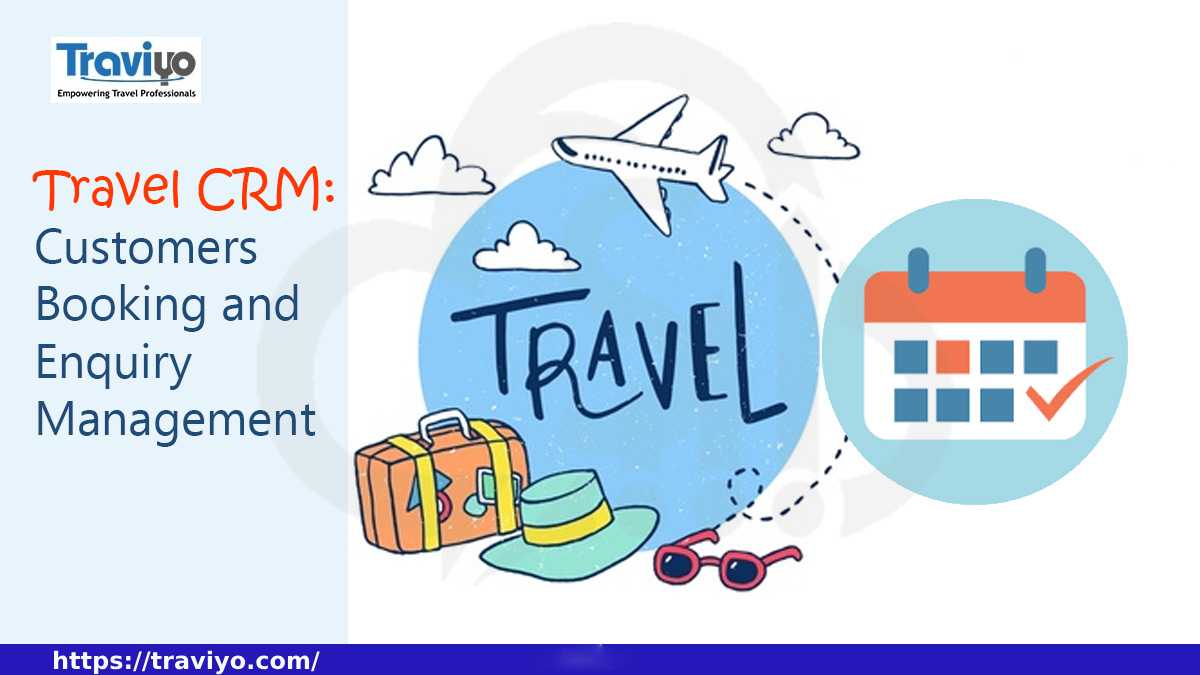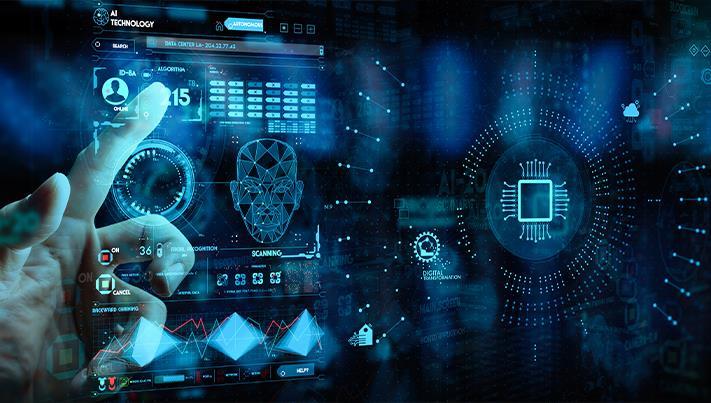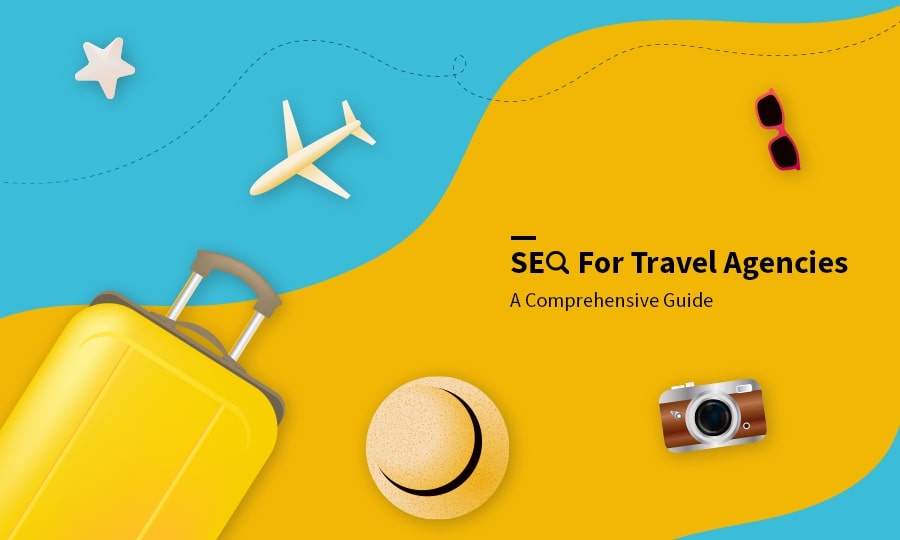
Maximizing Customer Relationships Using a B2C Travel CRM
Customer demands in the fast-paced travel sector of today have never been higher; hence, companies have to create fresh approaches to not only draw in but also keep current clients. Using a B2C (Business to Consumer) Travel CRM (Customer Relationship Management) solution is among the most efficient approaches to reaching this.
A B2C travel CRM is a useful tool for managing customer interactions, simplifying procedures, and improving the general client experience by means of which travel agencies manage A well-designed CRM will enable travel companies to establish unique, meaningful relationships with their consumers, therefore enabling increased client satisfaction, retention, and loyalty.
This paper will look at how a B2C travel CRM may maximize client relationships, simplify corporate procedures, and drive growth.
1. What is B2C travel CRM?
A B2C travel CRM is a tool meant to help travel agents manage and assess their interactions with individual consumers or clients. It offers a one-stop shop for handling consumer data retention, inquiry management, booking monitoring, customer support, and marketing projects. Offering tailored services and faster response to needs helps one to enhance the client experience.
From buying a flight or hotel to organizing a vacation, a CRM system is crucial in the travel business to manage challenging client contacts. Tracking tastes, behavior, and prior experiences helps businesses not only offer a more customized and strong service but also helps them to understand each other.
2. Customizing builds close bonds.
A B2C travel CRM's key benefit is that it provides every single customer with customized services. The competitive travel industry of today depends much on personalizing. Analyzing consumer data—including past bookings, tastes, and behavior—allows a travel agency to generate tailored offers and experiences that appeal to specific passengers.
For example, it will notify the travel agency and advise them to send focused promo letters when a client usually books locations with beaches. Regular travelers who have already enjoyed luxury holidays could find travel CRM recommending luxury vacations when planning their next trip.
Using a B2C travel CRM to customize interactions and offers helps travel companies make consumers feel appreciated and understood. This develops loyalty over time and trust.
3. Targeting and better segmenting of customers
By use of many variables, including demographics, preferences, travel history, and expenditure habits, a B2C travel CRM helps companies to segment their clients. Segmentation facilitates the development of more focused marketing efforts appealing to particular travel groups.
Businesses can design ads to appeal to families, single consumers, adventurers, luxury travelers, low-budget consumers, or otherwise. Concentrating on suitable audiences with the necessary details will help a company significantly enhance customer contact and conversion rate.
Perfect segmentation helps businesses identify the most valuable consumers, thereby creating loyalty programs or personal offers for the most devoted consumers. A B2C travel CRM promises improved data-driven effectiveness of these projects.
4. Good Customer Service and Communication
Strong customer connections are based on good communication. Using multiple channels—email, chat, phone support, and social media all bundled into one platform—a B2C travel CRM provides improved means of connection with consumers, therefore enabling travel companies to immediately respond to queries, booking requests, and consumer issues.
When a consumer gets in touch, a travel agency can instantly access the past of all the contacts the customer has had with the business, reservations, preferences, and conversations. This will help customer care agents to solve problems faster and with more context, facilitating a more effective service.
Reminders, confirmations, and follow-up emails will streamline the process so companies may keep interacting with clients free from constant intervention. Automated solutions let companies offer tailored recommendations depending on historical behavior so that consumers get the correct information at the correct moment.
5. Enhanced loyalty program-driven consumer retention
In this sense, B2C Travel CRM can be rather important since customer retention is much less expensive than attracting fresh business. Many CRM systems have integrated tools to design and run loyalty programs honoring returning users.
These programs allow you to add points redeemable for following bookings, discounts, or special service access. By tracking consumer booking patterns and degree of involvement, companies can provide customized incentives to inspire customers to come back for their next excursions.
A frequent flier can be granted a hotel stay discount or additional baggage allowance. Similarly, if a family plans several trips annually, loyalty programs can provide a family-specific offer including complimentary meals for kids or a better hotel.
Effective loyalty programs run through a B2C travel CRM can lead to the highest customer retention. It can help them to be recognized and valuable.
6. Data-Driven Decisions and Insights
Data-driven insights on consumer behavior and business performance provided by a B2C travel CRM will also help travel firms examine client data and spot patterns, preferences, and demands that might be vital in guiding decisions and planning.
A travel agency could find, for example, that most of its customers schedule their holidays in winter. This information can help them to advertise seasonal bundles or perhaps start their winter discounts far earlier than usual.
Measurement of performance indicators, including booking conversion rates, customer satisfaction level, and campaign efficacy, is another capacity of a B2C travel CRM. This information helps to customize the business plans with more chances for the proper reach and connection.
7. Creating lifetime relationships using proactive interactions
Long-lasting relationships are developed via proactive client involvement. The B2C Travel CRM helps businesses to keep their connection with customers even after they have made their bookings or completed their travel.
Businesses can, for example, provide post-trip questionnaires asking for opinions on the client's experience, therefore ensuring that any issues or complaints are quickly addressed. They might also follow up with invites to reward programs, customized travel advice, or special offers on recently discovered sites.
By continually engaging with customers and offering relevant material, businesses can keep their brand top-of-mind and increase the likelihood that customers will come back for following appointments.
8. Automation and Integration.
Many B2C travel CRMs can be combined with other company systems, including booking systems, payment gateways, and marketing automation tools. This is crucial since such integration guarantees that the delivery of services will be consistent and more coherent to consumers since all client data will be freely moved across many departments and functions.
Automated emails, reminders, and tailored offers help a company stay in touch with consumers without always needing human involvement in continually updating correspondence. This saves time and effort while keeping timely and suitable correspondence for the demands of the client.
Conclusion
Any travel agency where customer expectations are continuously growing finds that success completely depends on developing and maintaining strong client connections. Travel agencies can adapt their offers, improve customer experiences, and build loyalty using personalization of their services using tools and insights made available by a B2C Travel CRM.
Travel companies can improve consumer involvement, streamline operations, and induce development and success by means of CRM solutions. Travel firms can establish long-term relationships with consumers in a meaningful way with the correct CRM so that they not only return for the next reservations but also become brand champions, therefore enabling the company to expand much more.
Read Also
Integration of hotel APIs: their part in enhancing consumer experience

 Start your Travel Business with Our 7 Day Free Trial Website!
Start your Travel Business with Our 7 Day Free Trial Website!





